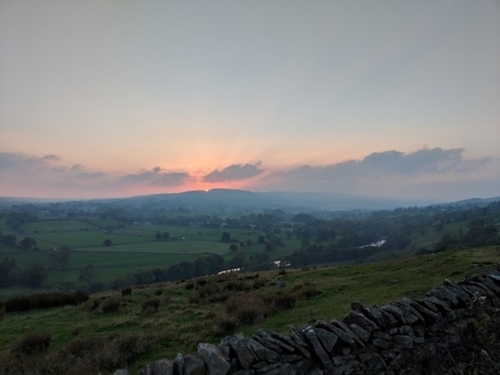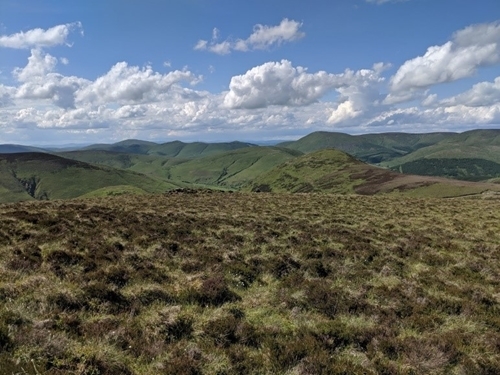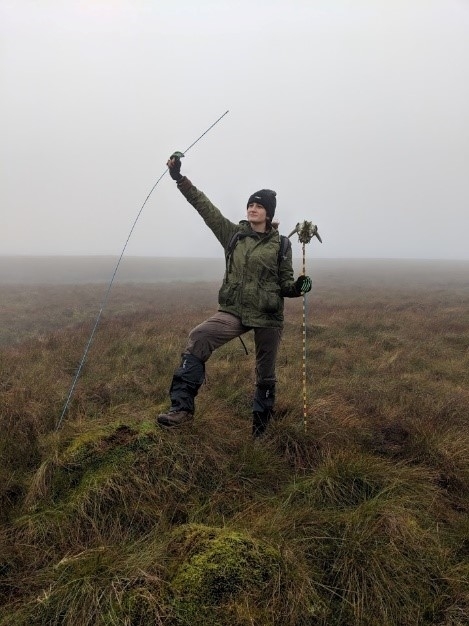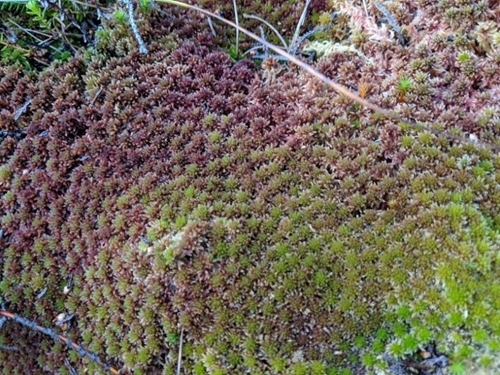Words by Hannah Weald
A few years ago, I visited the North Pennines on holiday. Amazed by its beauty and isolation, I told myself this was somewhere I could see myself living in the future. Little did I think that six years down the line I would be living and working here. Last August I drove four hours, following the signs for ‘The North’, not quite knowing what I was letting myself into for the next 12 months. Ditching university in the centre of Bristol for the moors, I was worried time would drag without my friends. Little did I realise the next year would fly by and here I would be with days left of my placement, wondering how I have managed to fit so much into the past year and dreading the thought of the traffic and people back in the city.

(The daily commute)
If anything, August is the perfect time to start a placement in the Uplands team, with the renowned ‘Glorious Twelfth’ beginning in my second week. This threw me in at the deep end, with weekly larder visits meaning I was soon literally up to my arms in blood and guts, collecting grouse innards for analysis back in the lab. I look back and am sure that this is a sort of initiation test for students. Those who can stay in a confined lab for 6 hours, with the stench of grouse guts, without passing out get to stay on; the others get fed to the pointers. This was the perfect opportunity for me to learn first-hand about the heart and soul of the uplands…red grouse. Meeting keepers, counting parasitic worms and learning the art of walking on heather moorland all gave me a crash course in the identity of the moorland itself. Within a month I had gone from struggling to identify a grouse to being able to identify species by call alone.

(Langholm Moor, a site for vegetation surveys)
Between the stints in the lab, I spent a large amount of time working with GIS software on a study revolving around mountain hares. As mountain hares are such a contentious issue in today’s climate, being involved in this work made me feel like I was truly involved in important current science - something I had never dreamed I would be doing as an undergraduate. I was lucky enough to see mountain hares first-hand (as well as capercaillie, red deer and other exciting species) whilst spending a week in the Highlands, working with one of the Upland team’s out-stations.

(Vegetation surveys in the northern sunshine)
Of course, winter up north is what you expect; cold and wet. I have spent many an hour soaked on top of a moor undertaking vegetation surveys, with only my GPS and the grouse for company, but it was whilst I was staring at the ground, trying to keep the rain off, when I discovered my passion for Sphagnum moss. People always laugh at me when I tell them this, but I think it is seriously under-rated and moorland wouldn’t have the peat we all know and love without it. This has led me to base my student project around vegetation on moorlands. It was during this data collection that I realised my interest in ecological surveying, something which I am now looking at going into as a career. Now, not only can I confidently ID every species of plant on a moorland but I also have some serious 4X4 off-roading skills.

(Sphagnum capillifolium - an under-rated moss)
I can honestly say I feel lucky to been able to experience life up in the north. It isn’t until I took a step back and went back home that I truly realised how much I have learnt and how many opportunities I have been able to have (my grandma, a keen bird watcher, was in shock when I told her I helped survey lekking black grouse). I have experienced the dedication which goes into fieldwork - I salute my colleagues who get up at 3am every day during grouse count season, the hard work of writing up the findings and the stress of stats! The uplands themselves are so often overlooked; as such an important area with so much politics surrounding it, only a handful of the population fully appreciate the commitment that goes into keeping it as a thriving ecosystem. I look forward to going back to Uni to apply my new-found knowledge and to spread to the word about the wonders of moorland. Who knows, maybe one day I will look back and the smell of grouse guts will bring back fond memories of the lab, but today is not that day.